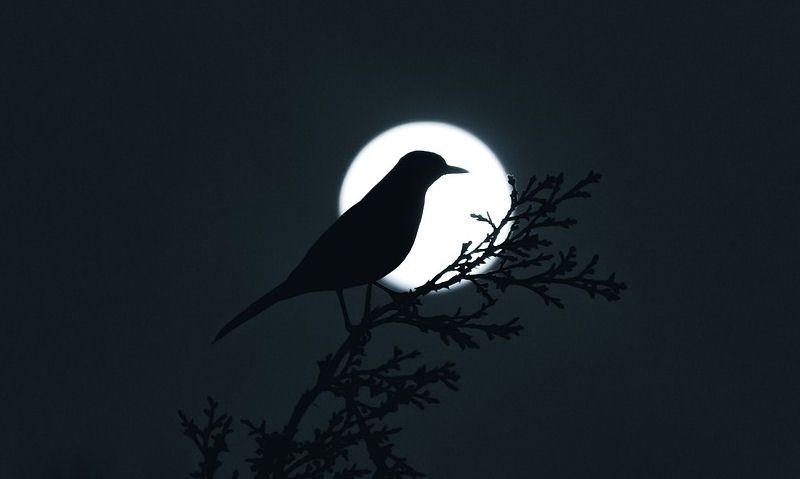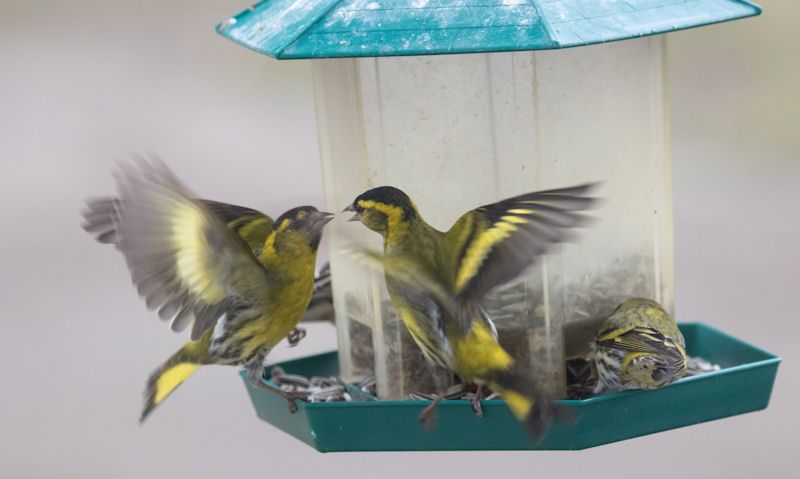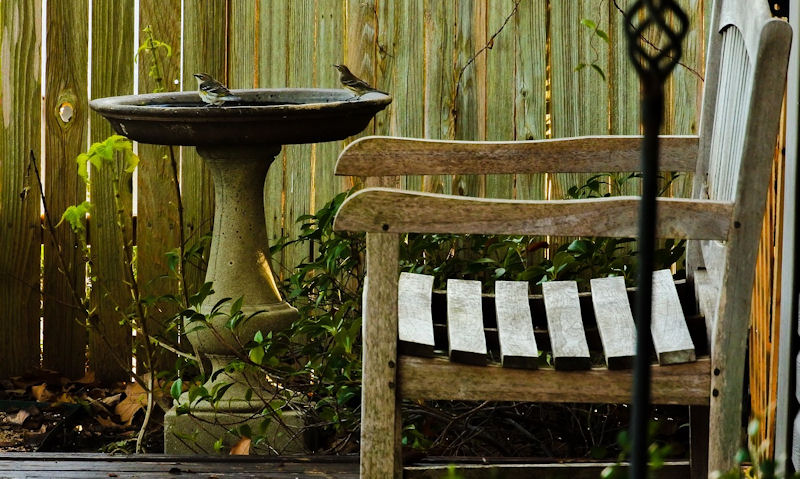Where do birds go at night
The most common birds in Britain put there head down before dark, well other birds are are awake, continuing what common birds do throughout the day.
Most common birds in Britain are diurnal, meaning they can't see at night so there only option is to sleep at night. This could be for nesting or roosting in the wild, or with use of a bird box; sleeping alone or huddled up with there own kind, well sleeping on the wing birds are Swifts.
Scientist have found wild birds can do the most bewildering things at night, so well many species go to sleep, other birds adapt to there environment.
Well common British garden birds will usually head back to there nest in the wood or the nesting box in the garden, this will not apply to sea baring birds.
Seabirds that stay close to the shore will nest in the cliffs or between rock cavities, as well has sleeping on open land, facing the ocean.
But for seabirds that venture further out to sea with little landmass in sight, they stay close to small isolated rocks and islands and sleep there.
Amazingly, few species will float on the calm water like a duck and sleep, well they would otherwise not act this way during the day.
Then there're birds that sleep on the wing; meaning they don't land but instead fly up to high attitudes - on thermals - before slowly descending.
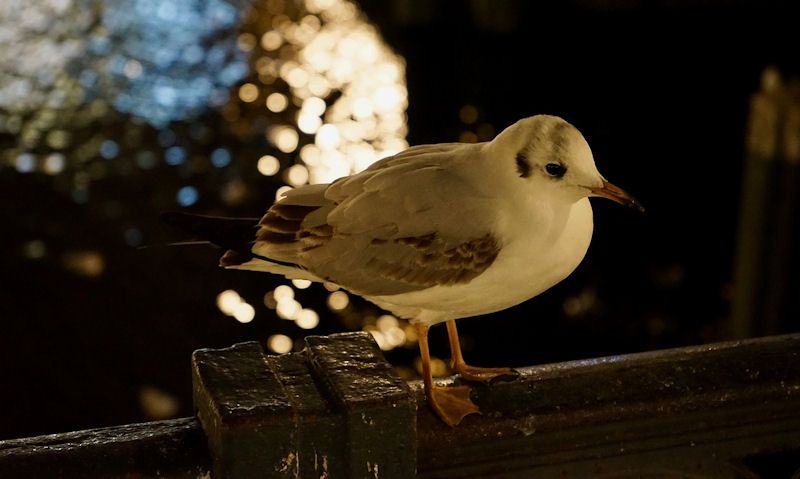
Its when they're descending they take a power nap before finding thermals again and doing the process all over again.
In general you'll find most birds do not fly at night as they're incapable of seeing in the dark, so there only choice is to sleep well they can at night.
Birds that live and stay in Britain will migrant to other parts of our country within a day, but for birds that arrive on our shores from abroad that is a different story.
Its known that some migrating birds that travel from far and wide will continue to migrant but sleep on the wing well not stopping at all on there long journey.
More often than not though, migrating birds will take passage in many countries on the way here, well sleeping in woodlands or farmland, or any safe haven that closely resembles there natural habitant back home.
Common garden birds
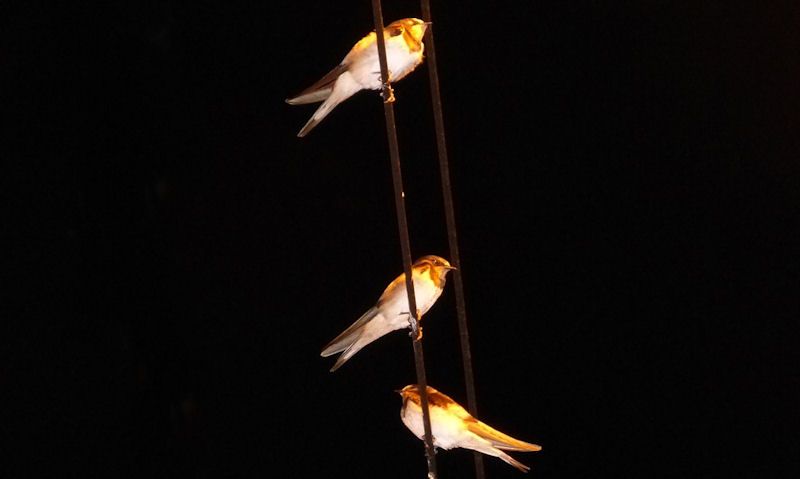
When we talk about common garden birds, we're of course talking about those that visit our gardens regularly in the UK.
All the Tit family, sparrows, Robins, Wrens... the lot. But what this group of small garden birds do at night is mostly sleep.
Well during the nesting season they have eggs to incubate at night well spending there day bringing back food for the young, and storing it for themselves.
But when the nesting season is over or before it has ever begun, the most common British birds we see the most simply roost.
What this means is they find a nest or use a garden bird box to put there heads down for the night.
Getting there heads down before dark then they're up with the sun to visit our garden bird feeders or feed close by in there natural habitants.
Seabirds
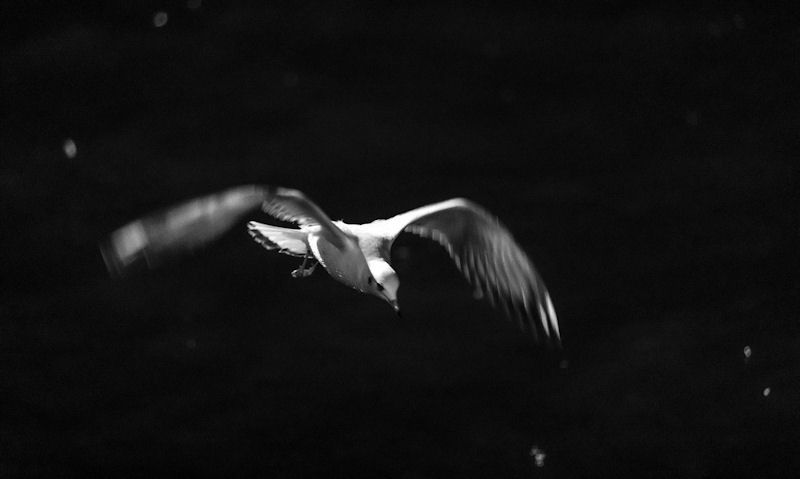
Where seabirds go at night is another matter, these often secluded birds who nest around our shores will use the same nesting sites to roost.
This could be on the rock face, open land near the sea or even on the beach.
Undisturbed, they will stay a sleep until the following morning where they will continue feeding through the day, before starting the whole process over again.
More secluded wild seabirds that are unlikely to visit our shores, instead stay within the confines of isolated small islands in the North Sea or Atlantic.
Here they can do one of many things; rest on the small island's cliff or sleep well floating on top of the water at short intervals at a time.
Birds sleeping on the wing
Several bird species such as the British Swift do not often roost as all, instead they will what is called sleep on the wing.
Whereas they will use thermals to rise to a high attitude before slowly descending back to earth.
In this short time its takes to descend the birds will power nap before waking up then rising to a high attitude before doing it all over again.
Of course, any bird that is nesting don't spend most of there time in the air, this only applies to off-nesting season well they spend there time eating and sleeping.
Sleep well migrating
Any bird found within Britain can migrate in Britain within a day or two for the winter or summer months, but this changes for migrating birds that visit Britain from abroad.
During these long flights the birds may take passage in various countries on route (as they do well passing through Britain), sleeping before taking flight again.
Though many species are known to get shut eye well in flight, preferring to stay with the flock rather than taking refuge to sleep alone.
Migrating birds that visit Britain in the summer or winter from abroad come from a far; including Russia, North Africa and Asia.
So well these flights can take weeks before they arrive on our shores, you could see them sleeping on the wing, well taking passage through many countries.
Not all birds in Britains go to sleep at night, in fact several species thrive at night such as that of the Owl, Nightjars and Eastern Whip-poor-wills.
As the owl ad Nightjar are birds of prey, they hunt on night creatures such as mice, rats and bats. Its only in the day they get rest eye before the night falls again.
To Summarise
Where do birds go at night is closely linked to each species. Your common garden bird will head back to there nesting grounds and sleep there.
This could be in the woods or a tree near by your house, and if you have a nesting box in your garden they could simply use it to roost
Well during the nesting season a Blue Tit or Coal Tit for example would use a box to nest with a female.
When roosting however, a dozen or more birds could sleep within a bird box at any one time.
And well Swifts do need to nest, such as they do in bird boxes we put up in the eaves of the house, they spend there time on the wing.
Basically flying up to high attitudes before taking a quick nap as they descend.
Sea baring birds that stay close to our shores will sleep where they nest on cliff faces and sandy beaches.
Those birds that live further out to sea will use isolated islands to roost, or in some cases will rest on top of the ocean water.
